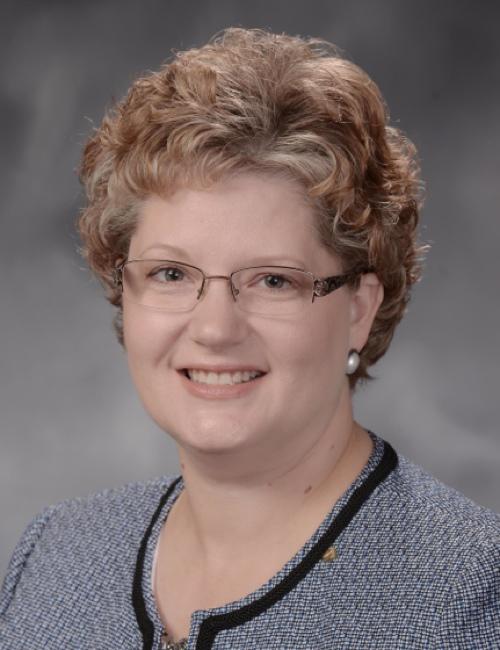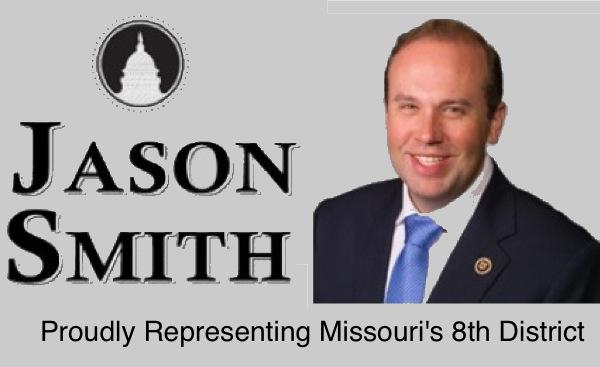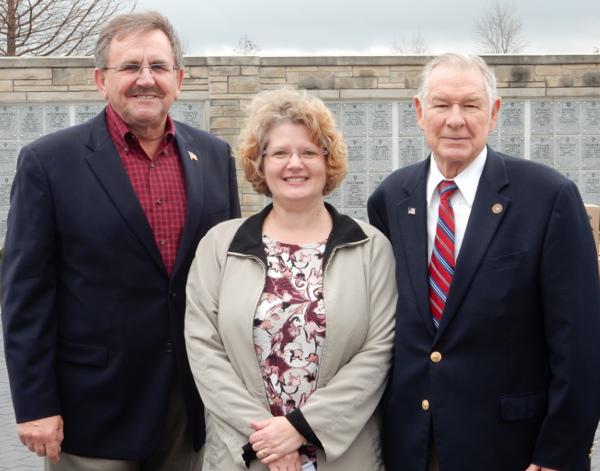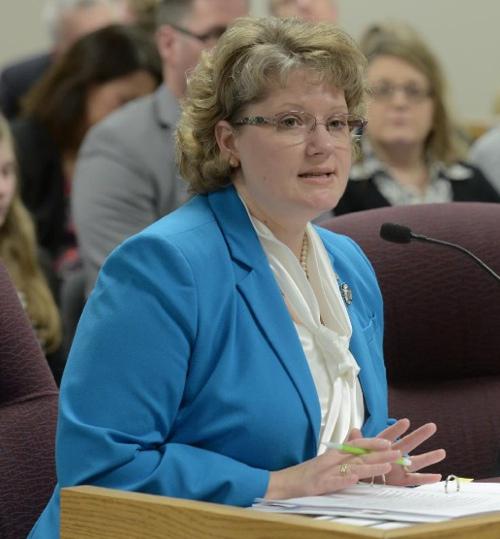
We passed two bills which I feel will have a direct impact on improving health care for all Missourians. I will share a summary of these two bills from the House communications office.
House Approves “Step Therapy” Measure to Improve Access to Vital Medications (HB 2029)
Missourians with chronic illnesses would have better access to the medications they need under legislation approved by the Missouri House this week. The legislation is designed to prevent redundant “step therapy” so that patients who switch health insurance benefits are not forced to try medications that have already proven to be ineffective before being allowed to use medication that works.
The legislation approved by the House simply ensures that a patient will not have to go through the process of trying multiple medications again simply because of an insurance change. In effect, it makes it so the medicine prescribed by the patient’s doctor is the medicine the patient is allowed to take.
The legislation received overwhelming bipartisan support and is now on its way to the Senate for consideration.
Expanding Access to Health Care (HB 1923)
The Missouri House approved legislation this week designed to modernize health care in Missouri, and improve the level of care provided by the state’s system of Medicaid. The legislation brings telehealth services in Missouri into state statute and works to bring greater access to health care to Missourians in rural and underserved areas.
The bill would update Missouri’s laws on Medicaid reimbursement in regard to telehealth services so that more health care professionals could provide telehealth care to Medicaid recipients. Supporters of the bill say it is an important change that will allow patients to receive care without having to travel long distances. They noted the change could also result in a significant cost savings. In 2015 the state’s Medicaid program allocated more than $40 million for use in providing non-emergency medical transportation to take patients in underserved areas to see specialists.

I understand how hard it can be to escape the cycle of poverty, especially in southcentral and southeast Missouri. 1 in 5 people living in Missouri’s 8th Congressional district struggle with poverty every day. In 2010, of the 30 counties in our congressional district, 20 had less than half of the number of adults gainfully employed.
The typical answers in Washington have been disheartening – more money, more programs, less results. Instead of creating incentives for people to work hard to get themselves out of poverty, of the over 80 different government programs established to combat poverty, we spend over $1 trillion each year with no improvements in this country’s overall poverty rate. We would be better off just writing a check for $22,000 to each of the 46 million people living in poverty in this country. Rather what your government has created is what is actually known as the “poverty trap”.
The Poverty Trap is any self-reinforcing mechanism which causes poverty to persist. In this country today, for far too many people stuck in poverty, it does not pay to get ahead. Federal government poverty programs are actually creating incentives for people not to work.
The people who have the highest marginal tax rates in this country are not the super wealthy. Instead it’s single mothers who struggle to make ends meet and rely on certain government programs for assistance. Under our current support model, if those mothers accept a pay raise from their employer, they actually lose more money than they gain since their reported income will go up and they will no longer be eligible for certain federal support. Where is the incentive to fight for that raise? We have created disincentives to work. People want to work. People want to contribute to their communities. We have to restructure our programs to encourage work, not discourage folks from taking raises for fear of losing benefits.
Speaker Ryan engaged the House of Representatives to become the House of Ideas. That’s why I’ve taken a leadership role both on the Ways and Means Committee on Human Resources and on the newly created Task Force on Poverty, Opportunity and Upward Mobility. Our mission is to work together to strengthen America’s social safety net to better help those in need; improve education and training so more can succeed in today’s economy; help welfare recipients enter, reenter, and remain in the workforce; and empower everyone to live their own American Dream. As the task force and the Committee continue to work together, we will present bold conservative solutions to reduce poverty by helping people move from welfare to work.
In the words of President Ronald Reagan “We should measure welfare’s success by how many people leave welfare, not by how many people are added.” I will continue to keep poverty reform as one of my top priorities in Congress, because I know that the only real way to solve poverty is to show people a path that encourages them to support themselves and their families. Ultimately, people need a hand up, not a hand out.

Bernie, Missouri - On Tuesday, March 29th, Congressman Jason Smith will be holding a community meet and greet in Bernie, MO. Local State Representative Tila Hubrecht and State Senator Doug Libla will also be in attendance to discuss issues and take questions from local residents.
“I am looking forward to the opportunity to hear from folks in Stoddard County about issues they care about most as well as let them know what I am trying to get done on their behalf,” added Congressman Smith.
WHO: Congressman Jason Smith, State Representative Tila Hubrecht, State Senator Doug Libla
WHAT: Community Meet and Greet
WHERE: Little House Restaurant – 309 S. Walnut Street, Bernie, MO 63822
WHEN: Tuesday, March 29, 10:00am-11:00am
Shown in the photo from left to right: Doug Libla, Tila Hubrecht, and Billy Pat Wright at the Veterans Cemetery in Bloomfield, Missouri.

Obamacare’s Unhappy 6th Birthday
Friday, March 25, 2016
Six years ago last Wednesday, Obamacare was signed into law. Since then, the Administration has intentionally broken the law to hide the laws failure.
Let me be clear, the Administration violated the U.S. Constitution and paid insurance companies money illegally. The Constitution states; the President “shall take Care that the Laws be faithfully executed…” The President does not write the laws, and he has no authority to spend money without Congressional approval. Despite that fact, the Administration paid off insurance companies, because they are losing money by participating in Obamacare, with so-called cost sharing reduction payments that clearly violate the framework of our Constitution.
The non-partisan Government Accountability Office (GAO) has plainly stated that laws like the Affordable Care Act do not have the authority to allocate taxpayer resources, only Congress can do that during the annual budget process. In other words, the President’s attempts to circumvent Congress and spend taxpayer funds in support of Obamacare are illegal. The Administration knows this. President Obama’s budget request for fiscal year 2014 requested an appropriation of $4 billion for cost sharing reduction payments. The Republican Congress denied that appropriation, but the Administration ignored Congress and paid insurance companies nearly $3 billion in 2014, and continues to make these payments.
As a result, the U.S. House of Representatives filed a lawsuit, with my support, against the Department of Health and Human Services to challenge their illegal implementation of Obamacare. On October 19, 2015 a federal judge agreed with the House of Representatives that we have the legal right to challenge the Administration for spending money that wasn’t approved to be spent by Congress. The lawsuit is still pending, but I am encouraged that the Court will agree that the Obama Administration broke the law because it’s clear as daylight. No matter the outcome, I will continue to vote to repeal Obamacare and end the negative impacts from this fundamentally flawed law. Since I have been sworn into office, the American peoples’ overwhelming disapproval of Obamacare has convinced the President to sign nine major repeals or delays of his namesake law, and earlier this year we put a major repeal bill on the President’s desk. He vetoed our repeal bill, and that’s why our work is yet to be complete.
In order to address the flaws of the failed health care law, Speaker Ryan engaged the Republican Conference and challenged us to become the House of ideas. We formed a task force on health care reform to develop and promote bold conservative ideas to fix our broken health care system. Our solutions will modernize American health care with patient-centered answers that improve access, choice, and quality, lower costs, and promote innovation. Our plan doesn’t put the government in between you and your doctor and allows the fundamentals of free market and competition to improve the access to affordable care in this country. It’s time to remove the government from interfering in your health care decisions and time to stop rewarding insurers with a taxpayer bailout.
I look forward to working with my colleagues and a republican White House in 2017 to finally repeal the horrible Obamacare law and replace it with a common-sense plan that improves the American health care system without government control. Hopefully next year we will be celebrating the bill signing of a conservative measure to put you and your families healthcare first, not the federal government.

The members of the Missouri House of Representatives spent all day Tuesday and then several more hours Thursday working on the Fiscal Year 2017 state operating budget. The 13 appropriations bills that make up the state spending plan are now on their way to the Senate for consideration.
During discussion on the House floor, the approximately $27.3 billion spending plan saw House members offer and adopt several amendments to move funding from one program to another.
Changes to the budget on the floor must either be revenue neutral or revenue positive. In effect, if a member wants to increase funding in one area of the budget, he or she must first reduce corresponding funds in another area. With this, the size of the budget cannot grow on the House floor.
Some of the major changes made to the budget on Tuesday include:
· A $1 million increase to the Foundation Formula that provides state funding for K-12 public schools. The money was moved from the Facilities Management Reserve Fund.
· An additional $55,000 for the Foundation Formula that comes from a cut to the Missouri Department of Social Services. House members made a cut of $379,000 to ensure no state dollars are used for nonemergency abortions. The majority of the funds are federal, but the $55,000 in state funds were reallocated to education.
· A $214,000 increase to the Parents as Teachers program. The money was cut from the budget for the governor’s office.
· An additional $50,000 to the Missouri Department of Elementary and Secondary Education that is designed to increase interest in Science, Technology, Engineering, and Mathematics (STEM) careers among middle school and early high school students. The money was moved from the Missouri Department of Natural Resources.
· A funding increase of $1 million for agricultural research at Lincoln University in Jefferson City. The funds, which were taken from the University of Missouri – Columbia campus, will allow Lincoln to receive matching federal land grant funding.
· $500,000 for the creation of an Urban Education Institute at Harris-Stowe State University. The money was moved from the funding increase for the state’s institutions of higher education.
· $750,000 for the Brain Injury Waiver to draw down federal funds to help provide care to Missourians with brain injuries who are currently on a waiting list. The money was moved from funds allocated for the Missouri Technology Corporation.
· $300,000 in funding for the Advanced Manufacturing Training Center to offer shop and lab training and classroom instructional opportunities to high school graduates and dislocated workers. The money was moved from funding for the Department of Natural Resources.
Highlights of the Fiscal Year 2017 state operating budget as it moves to the Senate:
· $70.3 million increase for the Foundation Formula, which funds K-12 public schools
· $9.4 million increase in performance funding for Missouri colleges and universities
· $5 million increase for K-12 transportation
· $4 million increase for the Access Missouri need-based scholarship program.
· $2.5 million increase for the A+ Scholarship program
· $500,000 increase for the Bright Flight scholarship program
· $1.3 million for 2015’s Dairy Revitalization Act
$2 million increase for river ports$1.25 million increase for business startups through the Missouri Technology Corporation$30 million to revive the state cost-share program to fund transportation projects Increase Medicaid provider rates by three percent $500,000 increase for the Alternatives to Abortion programTwo percent pay increase for state employees

